Water plays a pivotal role in maintaining overall health, extending its influence to the well-being of our hair. Yet, the quality and composition of water, particularly if sourced from a well, can significantly impact hair health.
In the article, we will delve into the potential effects of well water on hair, identify common contaminants found in well water, discuss methods for safeguarding and repairing hair damage caused by well water, and explore the advantages of utilizing water filters and softeners. For those enthusiastic about preserving the natural oils in their hair, understanding the intricacies of well water and employing appropriate treatment methods becomes crucial.
Is Well Water Good For Hair?
The question arises: Is well water detrimental to your hair? The answer is affirmative, contingent upon its composition. Untreated well water often results in damaged hair, a common consequence when used in households.
The presence of various contaminants in well water can strip hair color, necessitating adjustments to your hair care routine for protection. Moreover, well water may contribute to dryness, rendering hair susceptible to cracking and crinkling.
Is Well Water Harmful For Your Hair?
Despite its advantages, well water can have detrimental effects on your hair, primarily due to its hardness. Characterized as “hard,” well water often contains elevated levels of minerals like calcium and magnesium. While these minerals offer health benefits, they can leave your hair dry, brittle, and lackluster.
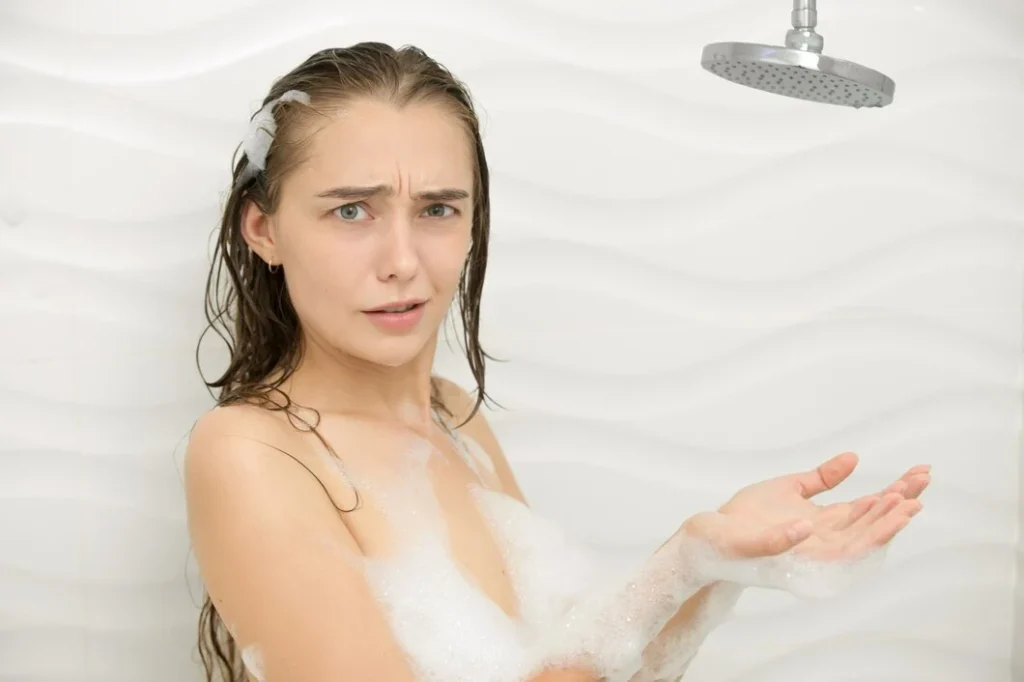
Contaminants
Iron is another common component found in well water, capable of depositing on the hair shaft. This deposition can lead to discoloration, dryness, and damage.
Moreover, iron in well water may accelerate the fading of dyed hair, requiring more frequent color treatments and causing additional harm.
Furthermore, some wells may harbor contaminants from natural sources or human activities, such as agriculture, further impacting the health and appearance of your hair. It becomes crucial, therefore, to identify and address these potential issues to safeguard the well-being of your healthy hair.
Most Common Contaminants That May Damage Your Hair?
A multitude of common contaminants is present in well water, posing a potential threat to the health of your hair. This underscores the inherent disadvantages associated with well water, which can adversely impact the vitality and overall health of your hair.

1. Hardness Minerals
1. 1. Impact on Hair
Calcium and magnesium, prevalent hardness minerals in well water, tend to accumulate on the hair.
1. 2. Long-TermEffect
The progressive accumulation of these minerals plays a pivotal role in diminishing the natural luster and color of the hair. Effectively addressing this issue demands a deep understanding of the intricate interplay between these hard minerals and the complex structure of the hair.
1. 3. Result
This accumulation results in a rough texture, making the hair challenging to manage.
3. Iron Contamination
3.1 Consequences
Iron, as another prevalent contaminant, gives rise to various issues.
3.2 Effects
This encompasses dryness, damage, and alterations in hair color.
3.3 Specific Issue
The presence of iron introduces a myriad of challenges, such as instigating dryness and inflicting damage upon the hair. Moreover, it exerts a substantial influence on the overall coloration of the hair.
Harmful Substance
4.1. Substances
Well water may contain harmful substances such as pesticides, bacteria, and heavy metals.
4.2. Origin
These substances may occur naturally or result from human activities.
4.3. Effect
Exposure to these substances can result in adverse effects, including scalp irritation and hair loss. Recognizing the potential sources is paramount for formulating and implementing effective preventive measures.
5. Testing and Treatment Importance
5.1. Regular Evaluation
Consistently testing well water is vital to identify the presence and levels of contaminants.
5. 2. Proactive Measures
Implementing subsequent treatment procedures can effectively mitigate these issues. Proactive testing and treatment are indispensable components in preserving the health and appearance of your hair when relying on well water.
Advantages of Well Water on Hair
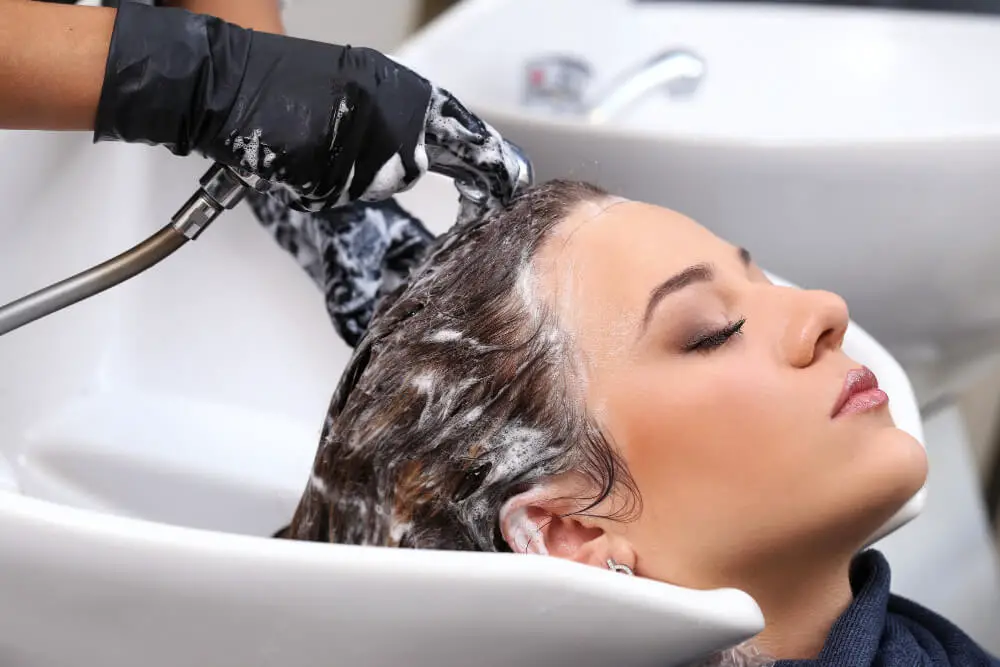
1. Water Treatment Control for Homeowners
Well water empowers homeowners with the autonomy to control and customize their water treatment. This encompasses the choice to install water softeners or filters, granting individuals the flexibility to tailor water hardness and eliminate specific contaminants according to their preferences.
2. Natural Minerals in Well Water
Well water typically harbors naturally occurring minerals, such as calcium and magnesium. These minerals not only contribute to the distinctive taste of well water but also offer hair benefits, health benefits, promoting aspects like bone health.
This attribute renders well water a preferable choice compared to treated municipal water.
3. Environmental Impact Reduction
Opting for well water can markedly decrease the environmental impact associated with water provision. In contrast to municipal water systems that depend on energy-intensive transportation and treatment processes, well water eliminates these necessities.
This fosters a greener and more sustainable lifestyle by minimizing the carbon footprint linked to water distribution.
4. Caution on Contaminant Treatment
Despite the array of benefits, it is crucial to underscore the necessity for rigorous testing and treatment of well water to ensure its safety.
This precaution is indispensable to identify and eliminate potential contaminants that could pose health risks. Regular testing and treatment play a pivotal role in upholding the overall quality and safety of well water.
How to Fix Hair Damaged By Well Water?
Addressing hair damaged by well water involves a multi-step approach. Begin by utilizing a clarifying shampoo specifically designed to eliminate mineral build-up and restore your hair’s shine and softness. Follow this with a deep conditioner to replenish lost moisture and nutrients.
Subsequently, explore the use of hair products tailored for hard water, such as chelating shampoos. These formulations contain ingredients that bind with the minerals in your hair, facilitating their removal during washing.
Lastly, incorporate treatments like hair masks and leave-in conditioners for added moisture and protection. These become particularly beneficial if your hair is exceptionally dry or has sustained damage from exposure to well water.
How to Protect Your Hair from Harm of Well Water?
You can ensure the health and vitality of your hair by incorporating the following steps:
1. Shower Filter Usage
It is advisable to install a shower filter to mitigate potential well water damage to your hair. Shower filters serve as effective barriers, removing harmful minerals and contaminants from the water before they reach your hair, thereby reducing the risk of damage.
2. Reduced Hair Washing Frequency
Encouraging less frequent hair washing is recommended to minimize exposure to well water. This approach helps mitigate the potential negative effects of minerals and contaminants on your hair.
Infrequent washing allows the natural oils to nourish and protect your hair, promoting overall health and resilience.
3. Use of Hard Water Shampoos and Conditioners
Opt for shampoos and conditioners explicitly designed for hard water when washing your hair. These specialized products are formulated to effectively remove mineral build-up from the hair, ensuring its health and protecting it from potential damage caused by the effects of well water.
4. Hair Protection from Heat Styling
Safeguard your hair from additional damage due to hard water by employing heat protectant sprays and refraining from excessive heat styling.
Given that hard water can already contribute to dryness, avoiding unnecessary heat styling helps mitigate the risk of increased vulnerability to damage.
5. Apple Cider Vinegar Rinse
Consider incorporating apple cider vinegar for its potential benefits in safeguarding hair, thanks to its array of vitamins and minerals.
While experimenting with a citrus and vinegar rinse is an option, it is crucial to emphasize the importance of having soft water in your plumbing system for optimal hair protection. Soft water enhances the effectiveness of the rinse in maintaining overall hair health.
Conclusion
Water quality, especially from wells, can profoundly impact hair health. Untreated well water has the potential to adversely affect hair, influencing both color and moisture levels. A comprehensive understanding of its effects, identification of contaminants, and the implementation of protective measures such as filters are crucial for maintaining healthy hair.
Well water, often characterized as “hard,” contains minerals that contribute to dryness and manageability issues. Despite the challenges, well water provides control over treatment, offers health benefits, and reduces environmental impact. However, a cautious approach is necessary to ensure safety.
Addressing hair damage induced by well water involves the use of clarifying shampoos and protective strategies, including the utilization of shower filters. The application of apple cider vinegar rinses is suggested, with a significant emphasis on the importance of soft water for optimal protection.
FAQs
What minerals in well water can affect hair health?
Iron and manganese are common minerals found in well water that can impact hair health. High concentrations of these minerals may cause discoloration, dryness, and damage to hair strands.
How can I test the quality of well water for hair concerns?
Water testing kits are available to check for mineral content in well water. You can also consult with a local water treatment professional for a comprehensive analysis to determine if the water is suitable for hair care.
Can well water cause hair discoloration?
Yes, high iron content in well water can lead to reddish-brown discoloration, commonly known as “iron staining.” Using water softeners or filters can help minimize this effect.
How can I protect my hair from the effects of well water?
Installing water softeners or filtration systems can help reduce the mineral content in well water. Additionally, using clarifying shampoos and deep conditioning treatments can mitigate the impact on hair.
Does boiling well water remove harmful minerals from hair?
Boiling well water may kill bacteria but won’t remove minerals. Filtration or water softening systems are more effective in reducing mineral content, and promoting healthier hair.


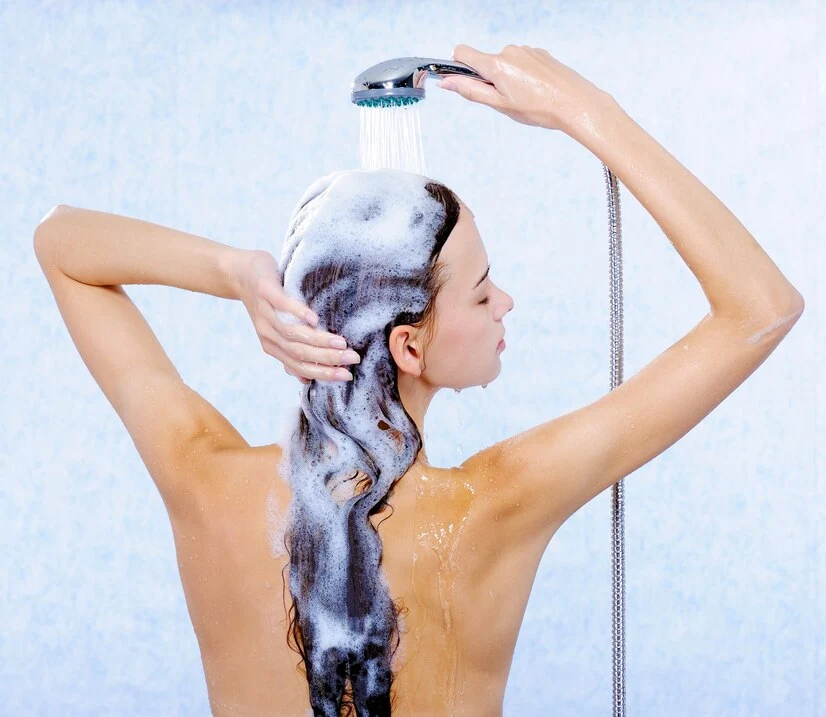

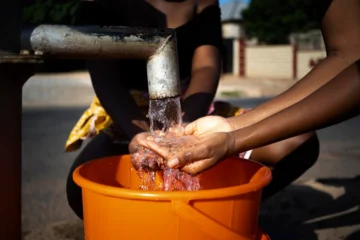
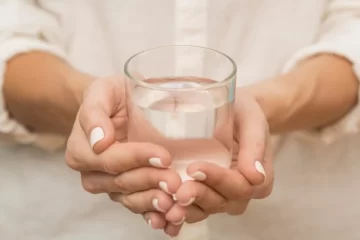
[…] levels of salts (may be present in well water) can raise your blood pressure, which is harmful to your heart and blood […]